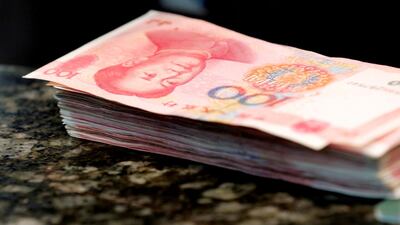The value of trade exchange between the UAE and China in 2017 grew 15.1 per cent over 2016, the Ministry of Economy said in a report.
Non-oil foreign trade exchange between the UAE and China rose to Dh195.8 billion last year compared to Dh169bn in the year before as the result of the rise in re-exports by 37.4 per cent, valued at Dh12.8bn, as well as a growth in imports by 14.7 per cent, valued at Dh177.4n, the ministry said, according to the UAE press agency WAM on Wedsnesday.
The UAE’s foreign trade with China in 2017 varied between direct trade, valued at Dh94.bn or 48 per cent of the country’s total foreign trade, and free zones, which was valued at Dh101.5bn or 52 per cent.
_______________
Read more:
Middle East tech firms eager to attract investments from $15bn Chinese fund
The China-Arab partnership promises a bright future
_______________
The UAE’s foreign trade with China made up 14.7 per cent of the country’s foreign total trade in 2017, according to initial statistics issued by the Ministry of Economy at the start of the current year.
The ministry stated that the UAE’s total foreign trade value in 2017 reached Dh1.7 trillion while predicting continued growth in 2018 and beyond.
The data from the report also showed that the value of direct trade varied between Dh79.7bn in terms of imports, around Dh5bn in terms of non-oil exports, and Dh9.5bn in terms of re-exported goods.

